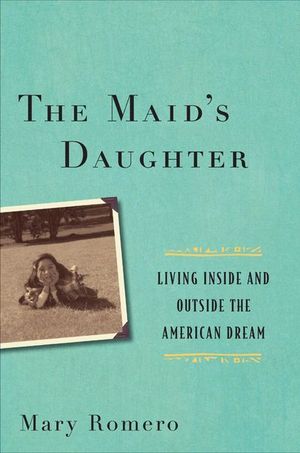The Maid's Daughter
Published by NYU Press
A “detailed, intimate” account of a Mexican American girl growing up in the luxurious Los Angeles home where her mother is a live-in maid (Publishers Weekly).
Born in Los Angeles, Olivia was taken to Mexico to live with her extended family until age three. Then she returned to L.A. to be with her mother, a live-in maid to a wealthy family. Mother and daughter sleep in the maid’s room, just off the kitchen. Olivia is raised alongside the other children in the house. She goes to school with them, eats meals with them, and is taken shopping for clothes with them. She is like a member of the family. Except she is not.
Based on over twenty years of research, this book brings Olivia’s remarkable story to life. We watch as she grows up among the children of privilege, struggles through adolescence, declares her independence, and eventually goes off to college and becomes a successful professional. Much of the story is told in Olivia’s voice, and we hear of both her triumphs and setbacks. We come to understand the painful desire to claim a Mexican heritage that is in many ways not her own and of her constant struggle to come to terms with the great contradictions in her life.
In The Maid’s Daughter, Mary Romero explores this complex story about belonging, identity, and resistance, illustrating the patterns of inclusion and exclusion in Olivia’s life. Romero points to the hidden costs of paid domestic labor that are transferred to the families of private household workers and nannies, and shows how everyday routines are important in assuring that various forms of privilege are passed from one generation to the next. Through Olivia’s story, Romero shows how mythologies of meritocracy, the land of opportunity, and the American dream remain firmly in place while simultaneously erasing injustices and the struggles of the working poor.
“There are no inherently good and evil characters in this story—just people trying to deal with the problems that come with having too much money, or not enough.” ―Los Angeles Times
“Illuminates race, class, and gender in America at a peculiarly intimate intersection between upper-middle-class white families and the women of color who provide domestic labor for them.” ―Library Journal
“Olivia’s true story growing up in the servants’ quarters of a gated luxury suburb may evoke Upstairs, Downstairs meets Beverly Hills 90210, but the narrative is infinitely more profound.” —Mike Davis, author of Planet of Slums
Winner, Americo Paredes Book Award for Non-Fiction presented by the Center for Mexican American Studies at South Texas College
Selected as an Outstanding Title by AAUP University Press Books for Public and Secondary School Libraries
BUY NOW FROM
COMMUNITY REVIEWS

